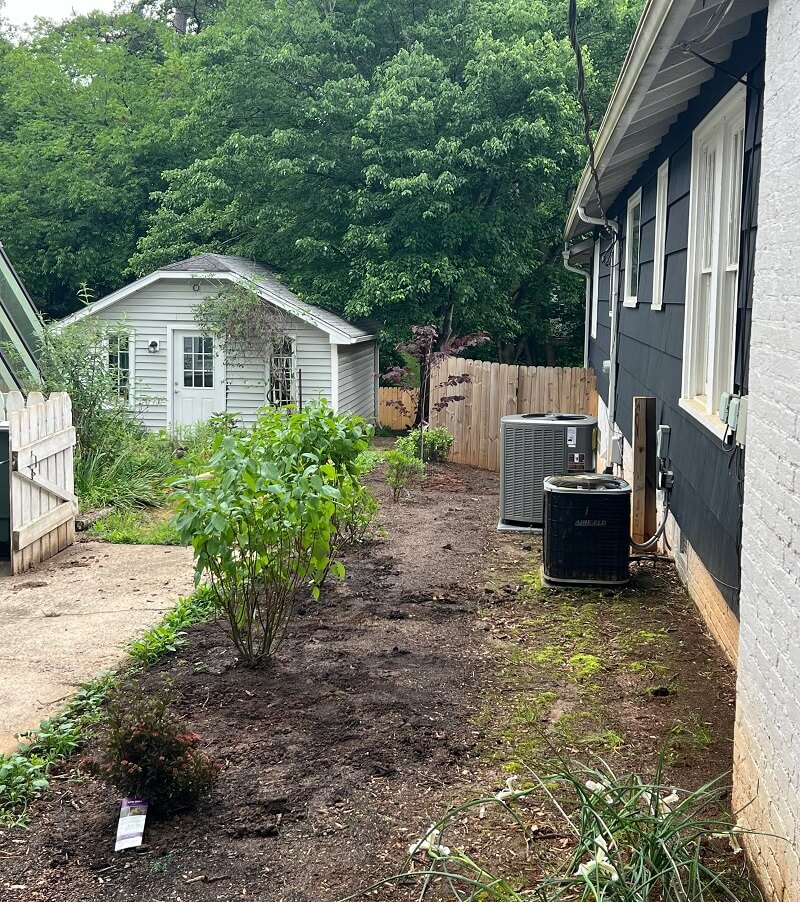Lawns have become a point of pride across the suburbs of America. According to a Princeton University article, over 40 million acres of land are covered by lawn or turf grass.
However, traditional monoculture lawns aren't so great for the environment. They require lots of water to keep looking healthy, which can be a costly drain on a vital resource, and need regular mowing, which is often done with polluting, gas-powered machines.
That's why opting to rewild your yard can be a much better option, saving money, time, and stress, and preventing the release of harmful toxins. Native plants require less maintenance and water, granting you extra time to focus on other needs that require your attention and saving you money on utility bills.


A North Carolina gardener went to r/NativePlantGardening for advice and suggestions after transforming their overgrown invasive hedge into a native garden.
The post shares a series of photos displaying the progress of the multiyear project so far.
"We spent hundreds of hours over nearly 2 years to get to this point," the original poster wrote.
They went on to explain that it took months to manually remove three species of invasive vines because they had taken up almost every inch of soil and were growing back so quickly.
Once that was finished, they were able to plan, design, and replant, which is when they discovered a love for native plant gardening.
"I am so thankful. I now have a fulfilling hobby that genuinely makes me happy and allows me to learn more and more about our landscapes and ecosystems each day," they said.
Natural gardening uses plants, grasses, shrubs, and ground cover that is indigenous to the area. There are all kinds of eco-friendly options, such as native plants, clover, buffalo grass, wildflowers, tapestry lawns, and xeriscaping.
Using plants native to the land also attracts pollinators, which are heroes of our food supply and seed production.
The post was met with all sorts of advice and thoughts from the gardening community.
"That's a lot of work, looks great!" one Redditor said.
"For shorter borders, new jersey tea, dwarf bush honeysuckle, lead plant, wild blue indigo," suggested one Redditor. "For taller, American hazelnut, red osier dogwood, elderberry."
"It was so satisfying to flip through those pictures and see your progress," commented a third.
Join our free newsletter for easy tips to save more, waste less, and help yourself while helping the planet.









